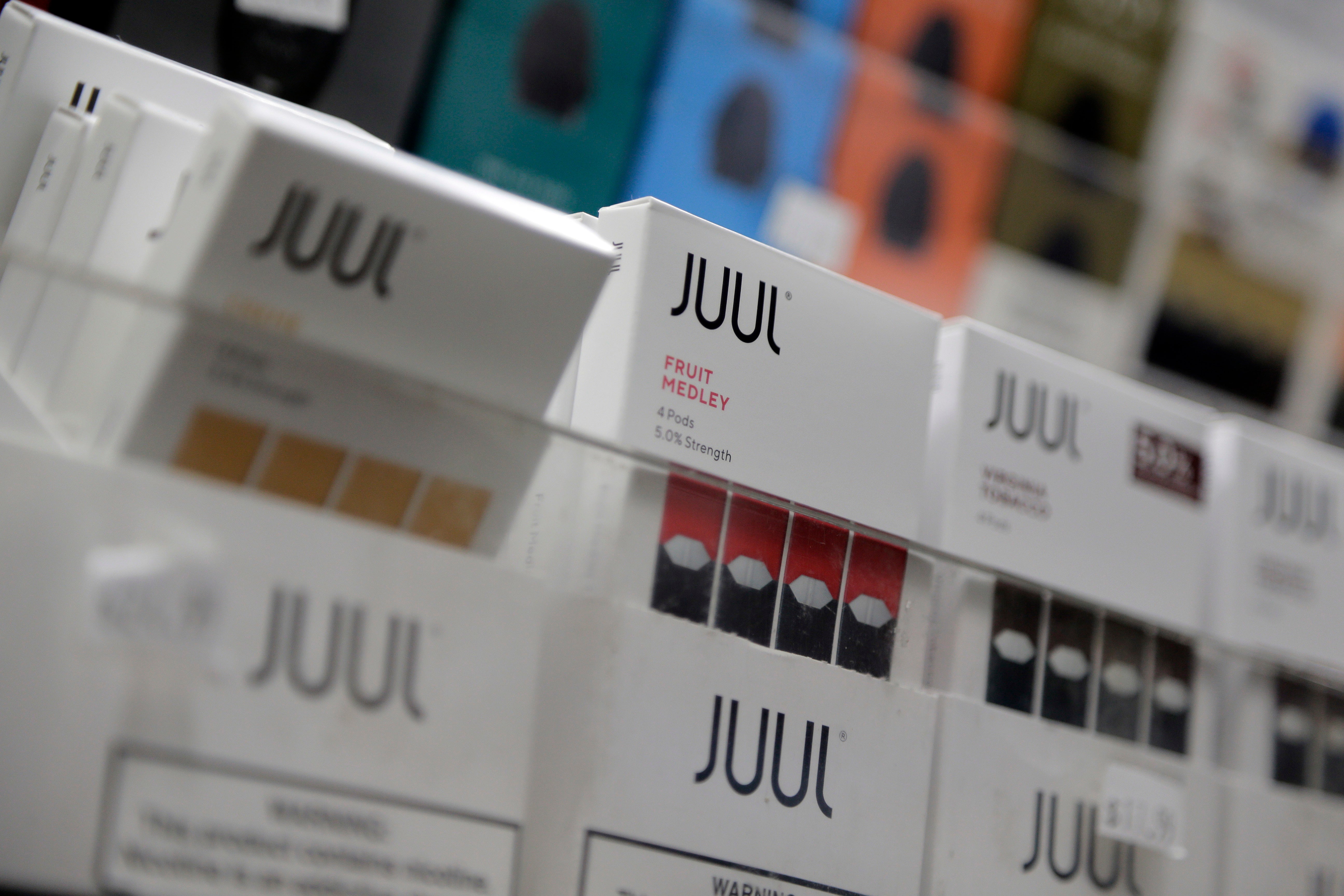Altria says judge has dismissed lawsuit over Juul investment
Altria says an administrative law judge dismissed a federal lawsuit alleging that its investment into vaping company Juul violates anticompetitive laws

Your support helps us to tell the story
From reproductive rights to climate change to Big Tech, The Independent is on the ground when the story is developing. Whether it's investigating the financials of Elon Musk's pro-Trump PAC or producing our latest documentary, 'The A Word', which shines a light on the American women fighting for reproductive rights, we know how important it is to parse out the facts from the messaging.
At such a critical moment in US history, we need reporters on the ground. Your donation allows us to keep sending journalists to speak to both sides of the story.
The Independent is trusted by Americans across the entire political spectrum. And unlike many other quality news outlets, we choose not to lock Americans out of our reporting and analysis with paywalls. We believe quality journalism should be available to everyone, paid for by those who can afford it.
Your support makes all the difference.Tobacco giant Altria said Tuesday that an administrative law judge has dismissed a federal lawsuit alleging the company's partnership with e-cigarette maker Juul Labs amounted to an anticompetitive agreement that hurt consumers.
The preliminary decision by the agency judge is subject to review by the Federal Trade Commission and will likely be appealed. The judge's ruling was not immediately available at the time of Altria’s announcement. The company, whose brands include Marlboro cigarettes and Copenhagen smokeless tobacco, said it is expected to be posted online later this month
The Federal Trade Commission sued in 2020 to break up Altria's pact with Juul, the embattled vaping company at the center of numerous government investigations and lawsuits over underage vaping. The FTC's case is separate from that issue and alleged that Altria's 2018 stake in the startup violated anticompetitive laws.
If the decision stands it will allow Altria to continue profiting from sales of Juul e-cigarettes. For its part, Juul received legal, regulatory and marketing assistance from Altria under the deal.
Still, e-cigarettes represent a diminishing part of Altria's future prospects. The Richmond, Virginia-based company has repeatedly slashed the value of its investment in Juul to roughly one-tenth of the initial amount, saying its stake is now worth just $1.7 billion.
For years, Altria competed in the burgeoning e-cigarette space. But Altria's Nu Mark brand was quickly overtaken by the startup Juul, which rocketed to the top of the industry in 2017 on the popularity of its small, high-nicotine and fruity flavored e-cigarettes. In addition to their use among adult smokers, the devices became a scourge in middle and high schools where students were caught vaping in bathrooms and between classes.
In 2020, under intense government pressure, Juul pulled all of its flavors except menthol and tobacco.
The FTC argued that Altria illegally agreed to discontinue its own e-cigarettes in 2018, shortly before taking the 35% stake in Juul. FTC investigators alleged that internal company documents showed Altria planned to upgrade its own e-cigarettes until Juul executives indicated a non-compete agreement would be a prerequisite for any investment deal between the companies.
An FTC spokeswoman declined to comment Tuesday, saying the agency wouldn't have a statement on the ruling until it is posted.
Among the many headwinds facing Juul is the possibility that health regulators will permanently ban its products from the U.S. market due to a history of underage use. The Food and Drug Administration is still weighing whether to allow Juul to remain as a less-harmful alternative for smokers.
The latest government survey data suggest teen vaping habits are shifting away from Juul. The top brand cited by high school students last year was a disposable e-cigarette called Puff Bar that comes in flavors like pink lemonade, strawberry and mango. Juul was the fourth most-cited brand.